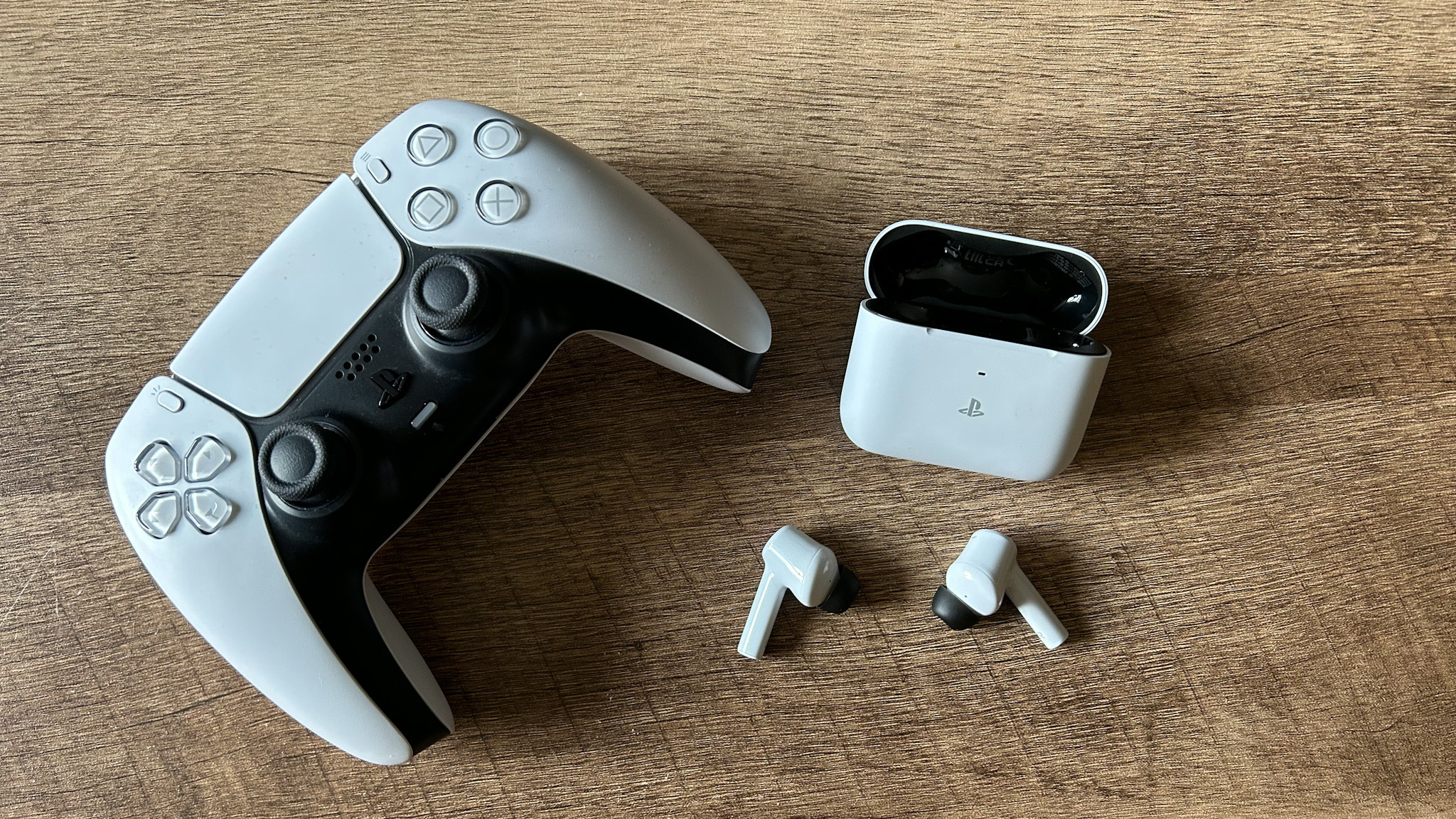GamesRadar+ Verdict
The Razer Hammerhead Hyperspeed true wireless gaming earbuds offer excellent value for money. Audio quality provides a surprisingly wide soundstage, but it's in the features that this value really shines. ANC, dual-connectivity, and a solid battery life make these a must-see for anyone on the hunt for a multi-faceted experience.
Pros
- +
Premium aesthetic and feel
- +
Low latency Hyperspeed connection
- +
Dual Bluetooth and 2.4GHz
- +
Wide soundstage with excellent balance
- +
Particularly strong dialogue performance
Cons
- -
Tap gestures are too unreliable
- -
Additional setup steps on PC
Why you can trust GamesRadar+
True wireless gaming earbuds are having a moment. With the likes of Sennheiser and Logitech bringing their own low latency buds to the shelves, more established gaming brands are upping their game. The Razer Hammerhead Hyperspeeds are the latest in the green snake's line of headphones, packing active noise cancellation, dual 2.4GHz and Bluetooth connection, and a built-in omnidirectional microphone.
Razer has some of the best gaming headsets on the market under its belt, exceeding in audio quality and comfort alike. In fact, the new Hammerhead model takes over from one of the best gaming earbuds available, the previous generation labelled 'Hammerhead True Wireless'. With specific releases tailored to PS5 and Xbox Series X players and the brand's Hyperspeed low latency connection, the new generation brings a speed-focused spin to an old favorite.
That said, it's not exactly ripping up the rulebook here - you'll find largely the same design and the same features under the hood. Will the new release be worth it for everyday players though? I took the $149.99 / £149.99 Razer Hammerhead Hyperspeed for PS5 out for a spin to find out.
| Price | $149.99 / £149.99 |
| Connection | 2.4GHz / Bluetooth 5.2 |
| Driver | 10mm |
| Frequency response | 20Hz - 20kHz |
| Microphone | Omnidirectional |
| ANC | Yes |
| Additional ear-tips | S, M, L |
| Controls | Touch |
| Battery | RGB / ANC off: 6.5 hours + 26 hours in case | RGB / ANC on: 4 hours + 16 hours in case |
| Compatibility | PS5, PC, Nintendo Switch, mobile |
Design
- Premium feel and slick PlayStation-oriented aesthetic
- Lightweight, skinny buds feel comfortable
- Case doesn't house USB-C dongle safely
I was pleasantly surprised when first opening the Razer Hammerhead Hyperspeed box. Having taken issue with the cheaper cases on both the Logitech G Fits and Turtle Beach Scout Air in previous reviews, the soft matte texture and solid feel of the charging case was keenly appreciated. Coated in a cool PlayStation gray and featuring a subtle PlayStation logo on the front (and an embossed Razer on the top), this certainly looks the part. It's an aesthetic that will easily tie the Hammerheads into any PS5 setup, and look good while doing so.
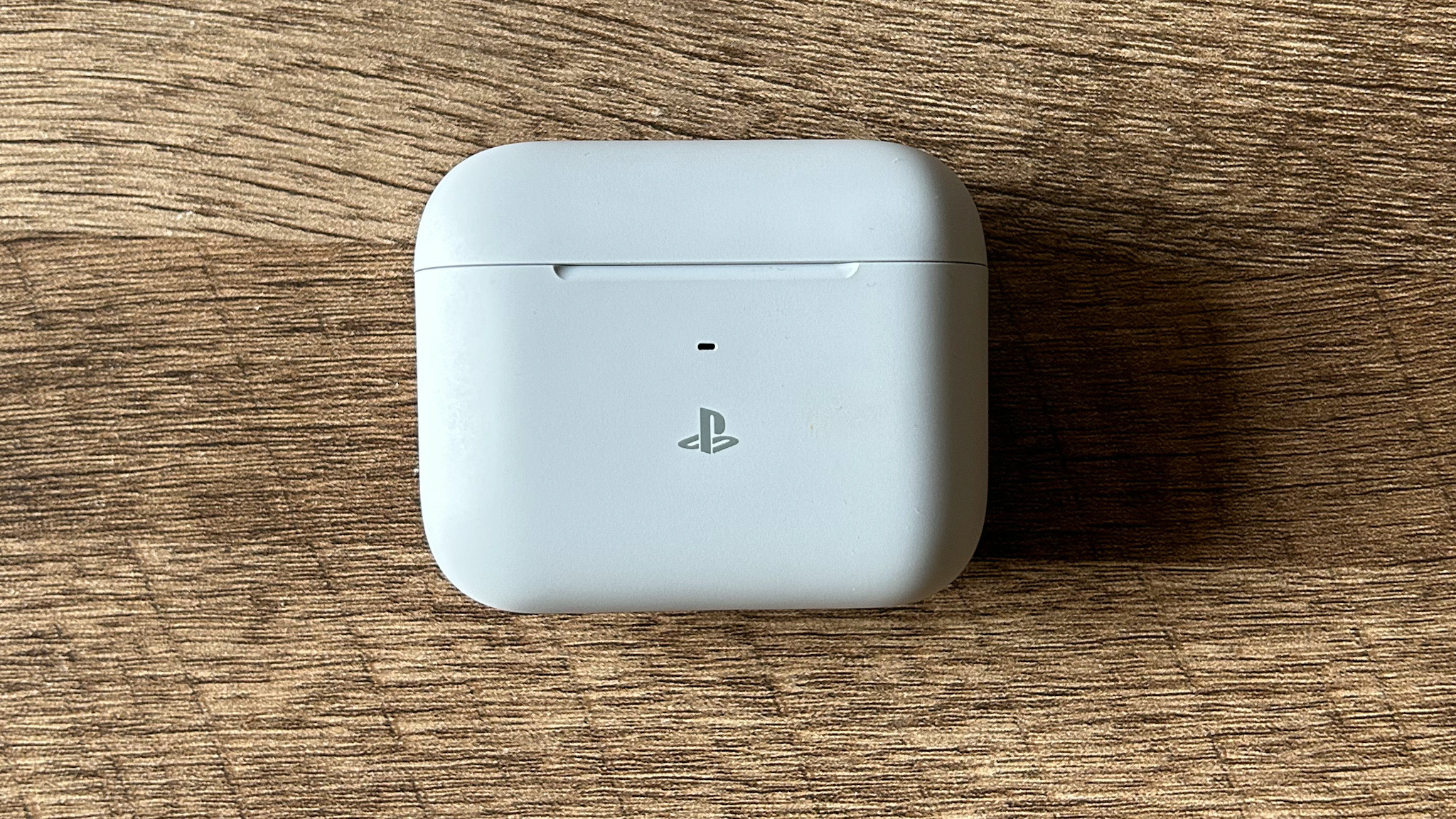
While lightweight, it still manages to feel premium in the hand, helped immeasurably by the snappy magnetic lid and durable hinge. I was concerned, though, that this softer material could be prone to scratches and scuffs when thrown in a backpack. However, after multiple train journeys in a stuffed bag and countless walks jumbling amongst keys in my pocket, this still looks good as new.
Clicking the case open reveals a glossy black plastic and, of course, the buds themselves nestled neatly in a slick mold. These buds are nearly identical to the previous generation in form factor, with the only real aesthetic difference being that light gray, almost white, paint job. Lightweight and with a skinny, particularly long stem, they feel comfortable in-ear and I never experienced any rubbing or irritation during longer periods of use.
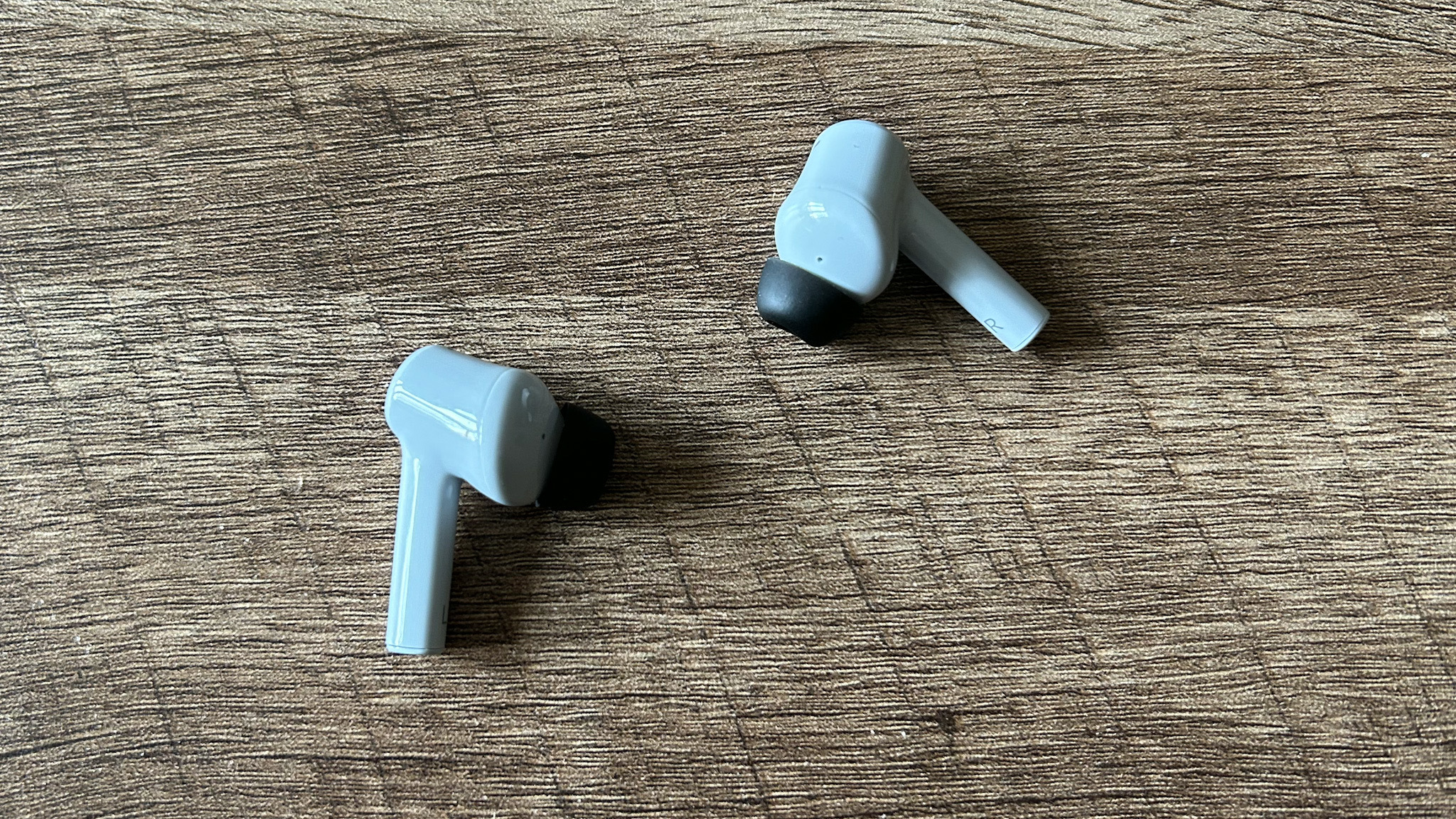
The back of each bud offers a sharp design contrast, with a glossy black panel and glowing Razer logo, synced up with the brand's Chroma settings. You've got the chance to adjust these colors and patterns inside the Razer Audio app as well.
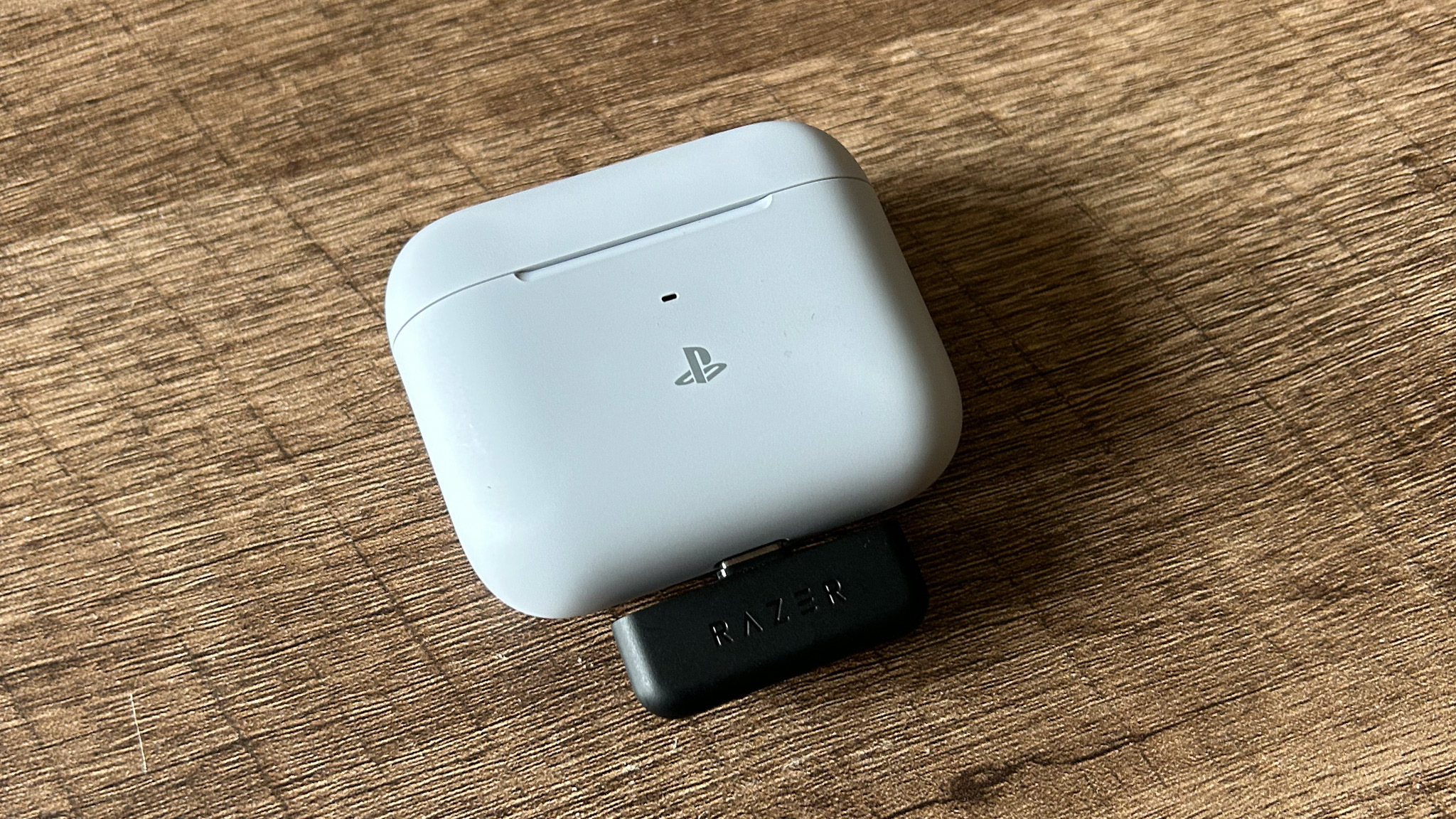
My only concern with the case itself is one that not many gaming earbuds have remedied. There's nowhere to keep the included USB-C dongle for transport. I did end up slotting it into the charging port on the bottom of the case itself, but was worried it would be knocked in transit and damaged, rendering both the Hyperspeed connection and charging case useless.
Features
- Handy and stable dual 2.4GHz and Bluetooth connection
- Excellent customization options in Razer Audio app
- Tap gestures are unreliable
The low latency Hyperspeed connection is the raison d'être here, offering speeds of 25-35ms. That's a solid result, boosting well over the previous generation's high PC latency via Bluetooth, and it's all down to the USB-C dongle you'll find in the box. Unfortunately, it's not quite a case of plug and play. Unlike any other wireless gaming headset I've tested, you'll need to manually assign the Hammerheads as the sound output method within Windows settings before you start playing. It's an extra step that caught me out during testing, but thankfully settings do hold when switching between devices.
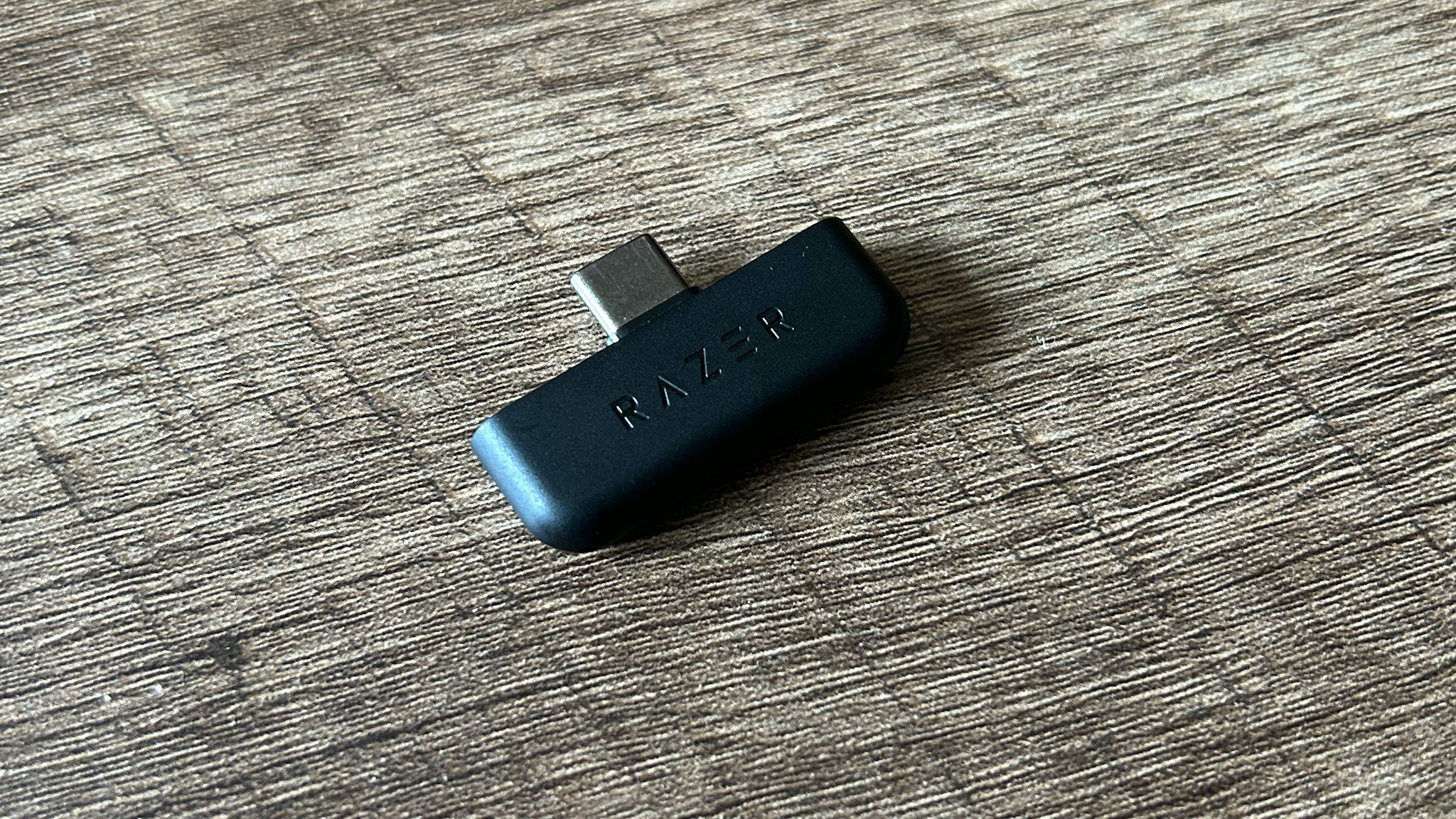
It's well worth ditching the Bluetooth connection of yore here, though. The speed and reliability of the Hammerhead Hyperspeed was particularly solid, allowing for split-second audio cue decisions out in the field. Not only that, but the new Hammerheads also allow for dual connectivity, keeping your earbuds connected to your phone via Bluetooth and your PS5, PC, or Nintendo Switch via 2.4GHz Hyperspeed. That means you can quickly pick up a call without having to remove your buds. Of course, you can also set the buds to Do Not Disturb within the Razer Audio app for a distraction-free experience.
The Razer Audio app offers plenty of customization options, and acts as a hub for all your settings and RGB effects. Here you can select different ANC levels (on, off, and Ambient), as well as set up your Chroma effects, choose between EQ presets or create your own, enable and disable low-latency Gaming Mode, quickly switch between known audio sources, and remap the touch buttons. It's a comprehensive piece of software, all easily navigable and intuitive. Exploring, however, will reveal one of the biggest problems with the Hammerheads: the touch controls.
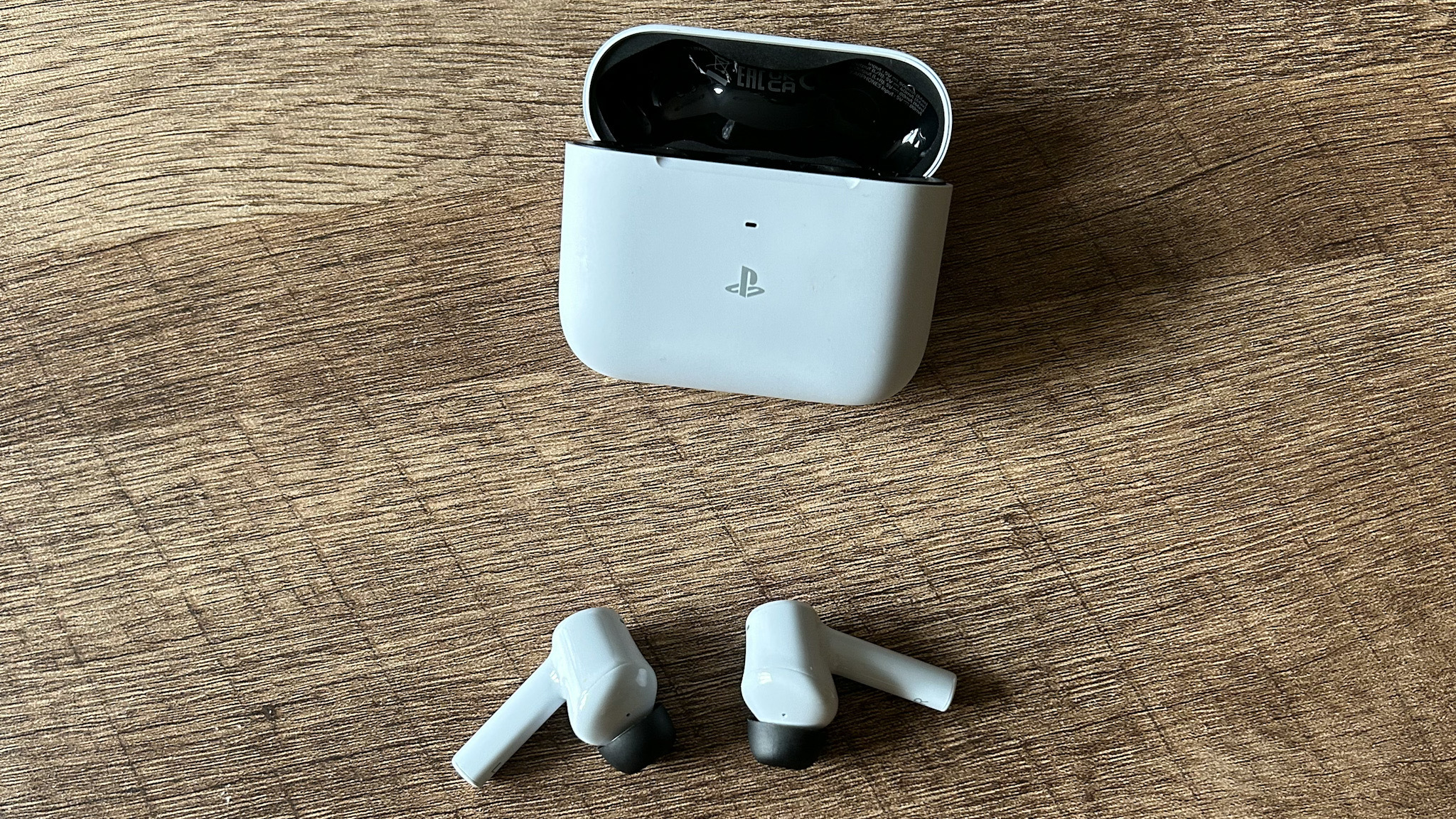
I'll admit I'm spoilt when it comes to lightning fast reactions to on-earbud gesture controls. My daily driver, the AirPods Pro, have a particularly snappy response to each pinch that I've come to expect from others. The Razer Hammerhead Hyperspeed not only didn't meet that expectation, but fell far shorter than others I've had my hands on.
The fact that there are so many command gestures to get your head around certainly isn't a bad thing. Between single taps, single holds, double taps, double taps and holds, and triple taps and holds (the triple tap option seemed to be grayed out for me), there's a lot of learning to do. I never quite managed to remember all the different commands I had set up, though did settle into a nice rhythm towards the end of my testing, limiting inputs to one or two taps.
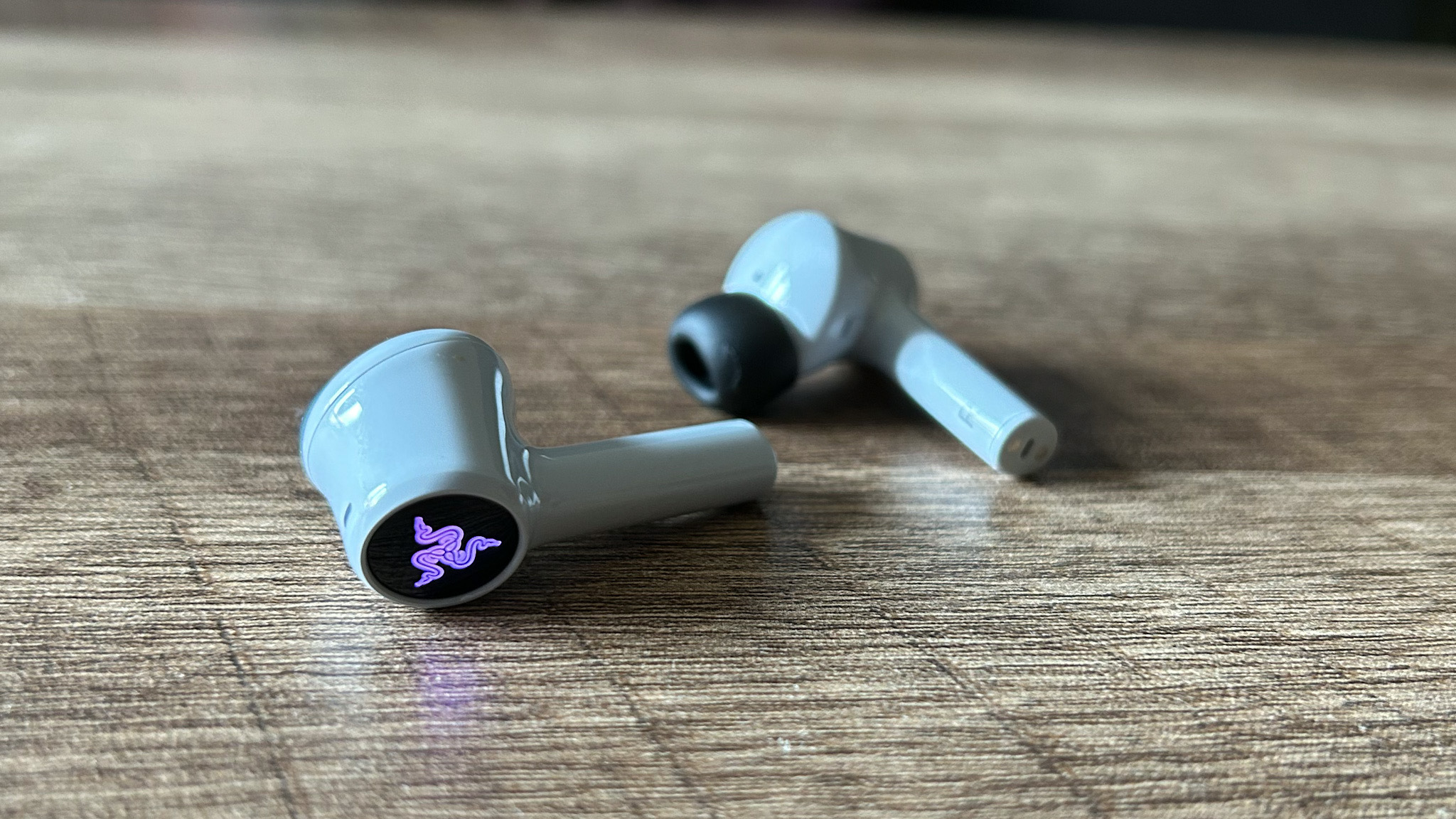
The real problem here is reliability. I rarely had a command snap straight through without a fight first. In my two weeks of testing, the vast majority of gestures I made fell on deaf earbuds. That's a major disappointment for anyone looking to pick up an all-in-one set of buds for gaming and music on the go, and is enough for me to avoid recommending the Hammerheads for anyone who relies on such tap gestures day to day.
That's especially frustrating considering the competency of the Hammerheads to reproduce any audio you throw at them surprisingly well, as we'll see in the next section, and to put up an admirable ANC performance to boot.
Performance
- Excellent balance across ranges with plenty of attention to detail
- Dialogue sounds particularly rich and full bodied
- Wide soundstage is perfect for soundtracks and open worlds
I was surprised by just how much room there is in the Razer Hammerhead Hyperspeed's soundstage. Coming from the flattened lines of the far more expensive Logitech G Fits, I was blown away by the dynamic audio on offer here. Of course, gaming earbuds aren't going to catch up to their full-blown over-ear siblings, but the power squeezed into these drivers was more than enough to keep me captivated. Across all genres I noticed a particularly strong attention to keeping dialogue rich and full-bodied, while also balancing bassier rumbles with more delicate higher ranges particularly well.
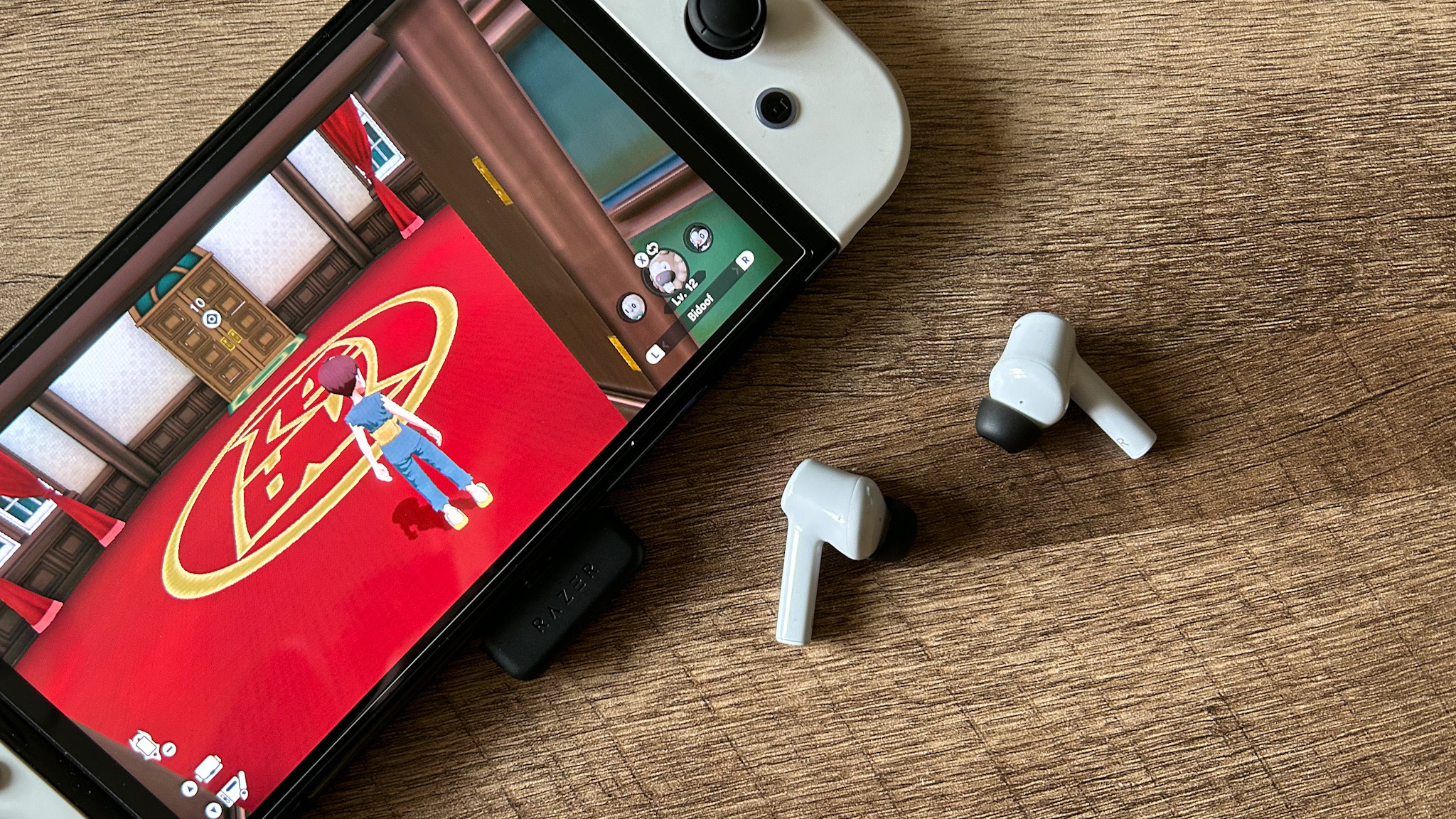
The opening to Pokemon Legends Arceus on Nintendo Switch was velvety and booming, with a deepness to both music and sound effects that I haven't heard from gaming earbuds before. That continued through to the main gameplay as well, with a punchy zing to higher effects and plenty of space for the soundtrack to breathe.
The Last of Us Part 2 fared particularly well on PS5, and it's here that that attention to dialogue was most keenly felt. Every inflection was represented beautifully in cutscenes, and still managed to retain that human voice richness when set against wider soundscapes. Everything sounded particularly well proportioned as well, with smaller details like background chatter and footsteps cutting just the right balance with the main action ahead of me.
Horizon Forbidden West was a little more muted in its treatment of dialogue, but the tradeoff was a nicely intricate handling of machine sound. It was here that I noticed the ability of the Hammerhead Hyperspeed to work across all ranges in tandem, and in equality, to accurately reproduce a more complex overall profile. Sound effects in Forbidden West did override the soundtrack considerably, though, and on occasion did feel a little blown out.
It's also worth noting that the Hammerheads offer volume controls on the buds themselves. Reliability aside (this is hopefully something that could be fixed in future firmware updates), it's strangely rare to find this feature but it's one that saves you navigating to menus every time you need to made adjustments.
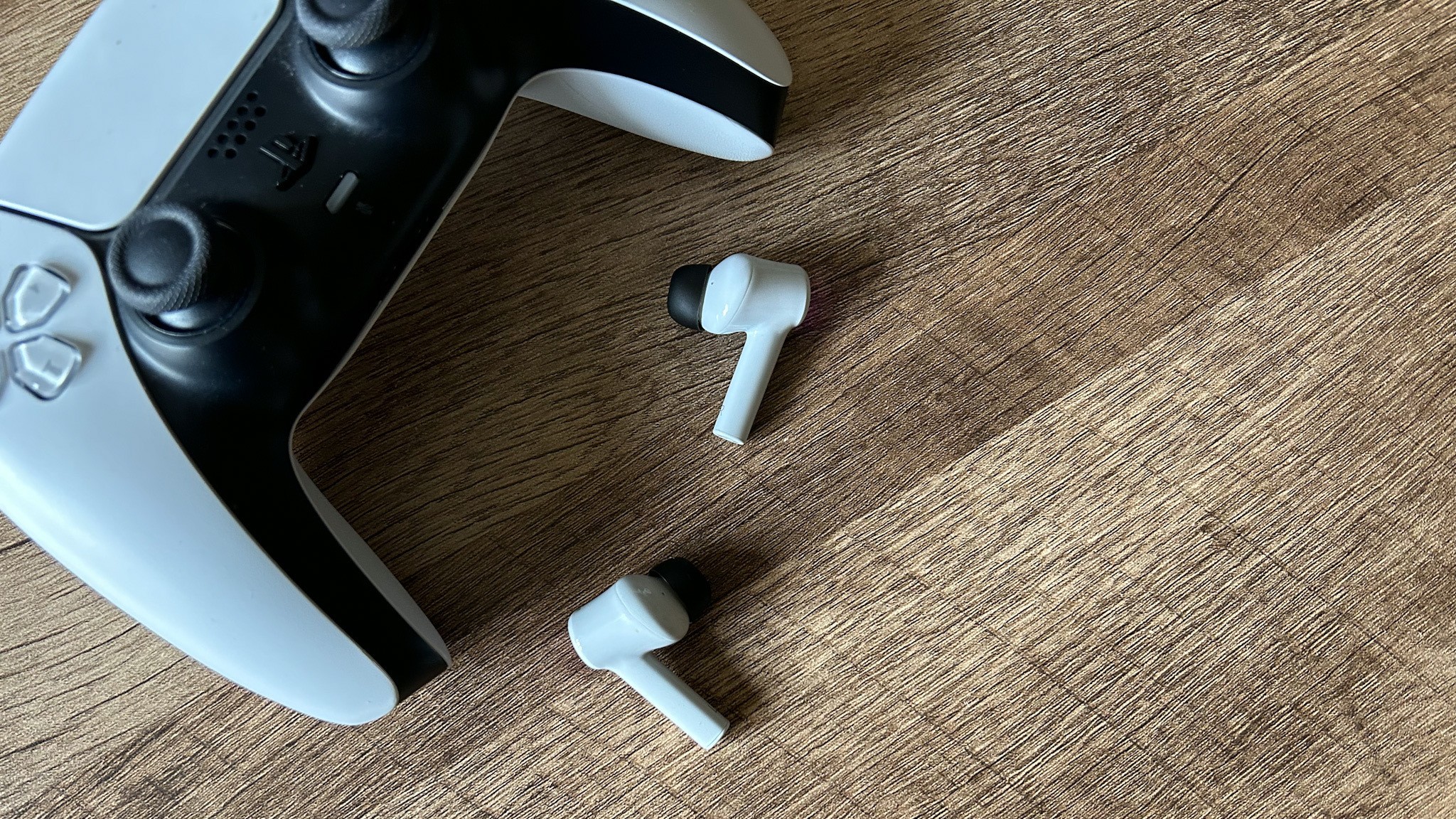
Taking things to the PC arena, Doom Eternal crunched with a satisfying power, with the whirring and clunking of machinery offering a particularly full-bodied experience. I do, however, personally prefer more bass to my soundscape in situations like this. The default profile which had balanced everything so carefully in other testing scenarios didn't quite manage to pack the punch Doom Eternal was crying out for. Switching the EQ preset to bass boosted did bring those lower ranges to the fore, but at the expense of pretty much everything else which is disappointing.
That said, the Hammerheads were well equipped to deal with a varied taste in music. I did miss the oomph of my AirPods Pros while out and about, but at $149.99 / £149.99 there's certainly plenty going for them. The White Stripes' throaty coarseness was handled with an impressively powerful balance. In the higher ranges, Oh Wonder's twinkling melodies and ethereal waves shone through with clarity and sharp precision. The only time I noticed the Hammerheads struggling was during a more crowded soundscape. The electronic thrashes of Grandson were a little muddled, though I did much prefer this listening experience over that of cheaper Turtle Beach buds, and even the Logitech G Fits.
Should you buy the Razer Hammerhead Hyperspeed?
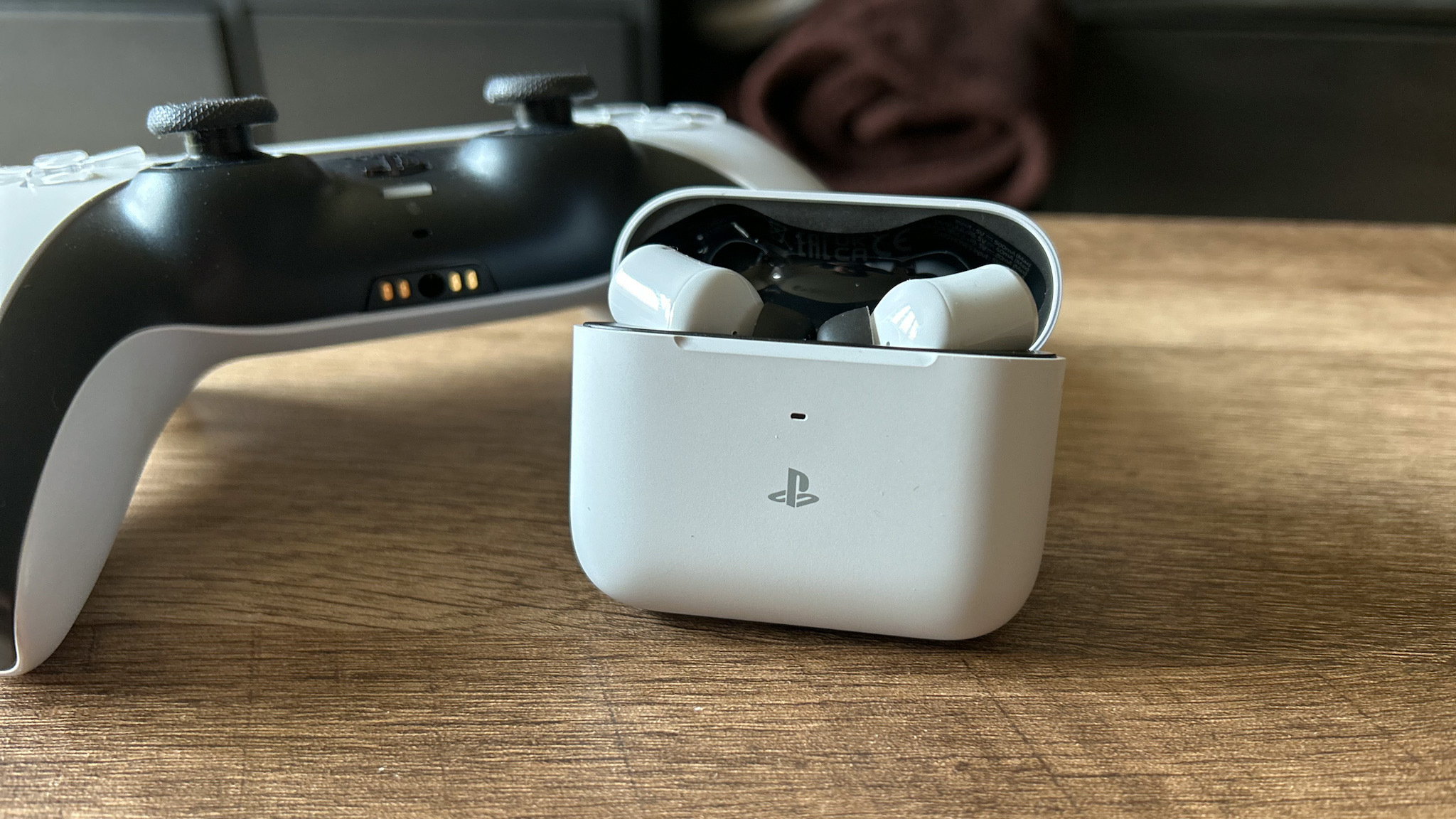
The Razer Hammerhead Hyperspeed for PS5 are an excellent choice for anyone looking to pick up a set of buds for interchangeable PlayStation, Nintendo Switch, and PC play. That $149.99 / £149.99 price tag is actually working particularly hard for you when looking at the competition. Our current favorite gaming earbuds, the Sennheiser EPOS GTW 270 Hybrid come in at the same cost, but drop you down to Bluetooth 5.1, don't offer touch controls, and lack ANC as well. Yes, they do sound better overall, but if you're after a more rounded package in terms of features, the Hammerheads are the better choice.
It's worth noting that anyone on the hunt for an Xbox Series X headset might need to think twice. The Hammerheads are available in an Xbox variant, but the battery life is dropped down from the 6.5 hours on PlayStation down to 3-4 hours. That said, if you're running both consoles, it's also worth noting that the Xbox edition is the only version that will be able to run on Series X and PS5.
If you're looking to spend less, though, the Turtle Beach Scout Airs might be on your radar. These buds launched at $99.99 / £89.99 but are regularly available for under $50 these days. With their lack of 2.4GHz connection, though, I would only recommend these to anyone who plays single player games on PC and Nintendo Switch only and is really after true wireless connection at the lowest price possible.
Overall, the Razer Hammerhead Hyperspeed do offer excellent value for money. The unreliability of the touch controls may stop them being a true all-in-one silver bullet for commuters, but they will certainly go the distance for anyone after a PS5 headset or Nintendo Switch headset. That USB-C connection will also make the Hammerheads an excellent option for anyone looking for a Steam Deck headset as well.
| Specs | Razer Hammerhead Hyperspeed | EPOS GTW 270 Hybrid | Turtle Beach Scout Air | Logitech G Fits |
|---|---|---|---|---|
| Price | $149.99 / £149.99 | $149 / £129 | $99.99 / £89.99 (regularly on sale) | $229.99 / £229 |
| Connection | 2.4GHz / Bluetooth 5.2 | 2.4Ghz / Bluetooth 5.1 | Bluetooth 5.1 | 2.4Ghz / Bluetooth 5.2 |
| Driver | 10mm | 10mm | 10mm | 10mm |
| Frequency response | 20Hz - 20kHz | 20Hz - 20kHz | 20Hz – 20kHz | 20Hz - 20kHz |
| Microphone | Omnidirectional | Dual beamforming | Omnidirectional | Dual beamforming |
| ANC | Yes | No | No | No |
| Additional ear-tips | S, M, L | XS, S, M, L | S, M, L | None |
| Controls | Touch | Single button | Touch | Touch |
| Battery | RGB / ANC off: 6.5 hours + 26 hours in case | RGB / ANC on: 4 hours + 16 hours in case | 5 hours + 15 hours with case | 5 hours + 15 with case | 7 hours + 8 hours with case |
| Compatibility | PS5, PC, Nintendo Switch, mobile | PC, PS5, PS4, Nintendo Switch, mobile | PC, Nintendo Switch, mobile | PC, PS5, PS4, Nintendo Switch, mobile |
How we tested the Razer Hammerhead Hyperspeed
I used the Razer Hammerhead Hyperspeed for daily play, music, and work over the course of two weeks. One of those weeks was spent testing the Hammerheads in isolation, whereas I was comparing with the Turtle Beach Scout Air and Logitech G Fits for the second week. During that time, I mainly used the Hammerheads with Dragon Quest Builders 2 and Pokemon Legends Arceus on Nintendo Switch, The Last of Us Part 2 and Horizon Forbidden West on PS5, and Doom Eternal and Sable on PC. For more information on how we test gaming headsets, check out the full GamesRadar+ Hardware Policy.
We're also rounding up all the best PC headsets on the market, and plenty more of the best Razer headsets to boot. If you're after more kit for your setup, though, be sure to take a look at the best PS5 accessories available now.

Managing Editor of Hardware at GamesRadar+, I originally landed in hardware at our sister site TechRadar before moving over to GamesRadar. In between, I've written for Tom’s Guide, Wireframe, The Indie Game Website and That Video Game Blog, covering everything from the PS5 launch to the Apple Pencil. Now, i'm focused on Nintendo Switch, gaming laptops (and the keyboards, headsets and mice that come with them), PS5, and trying to find the perfect projector.
